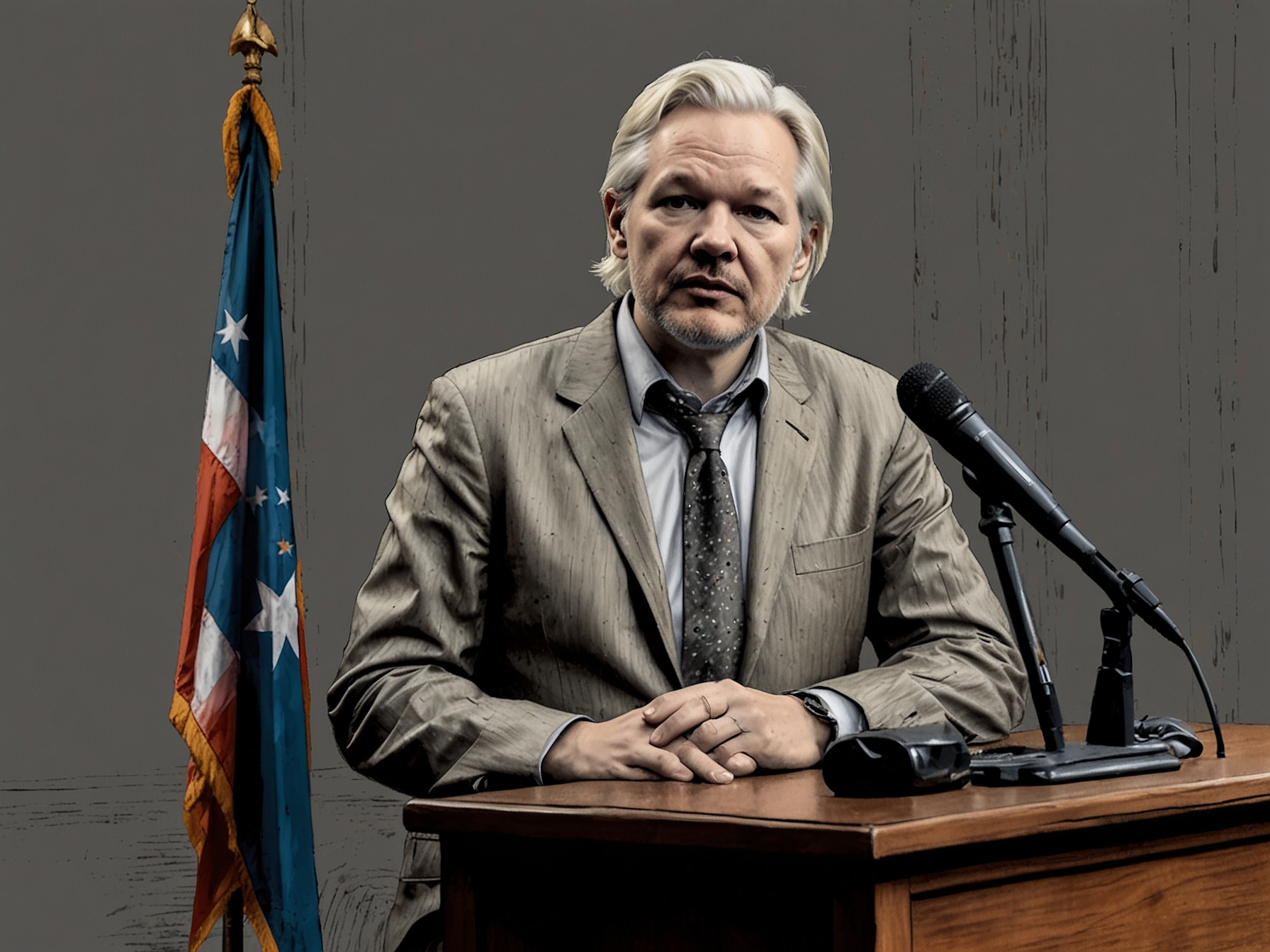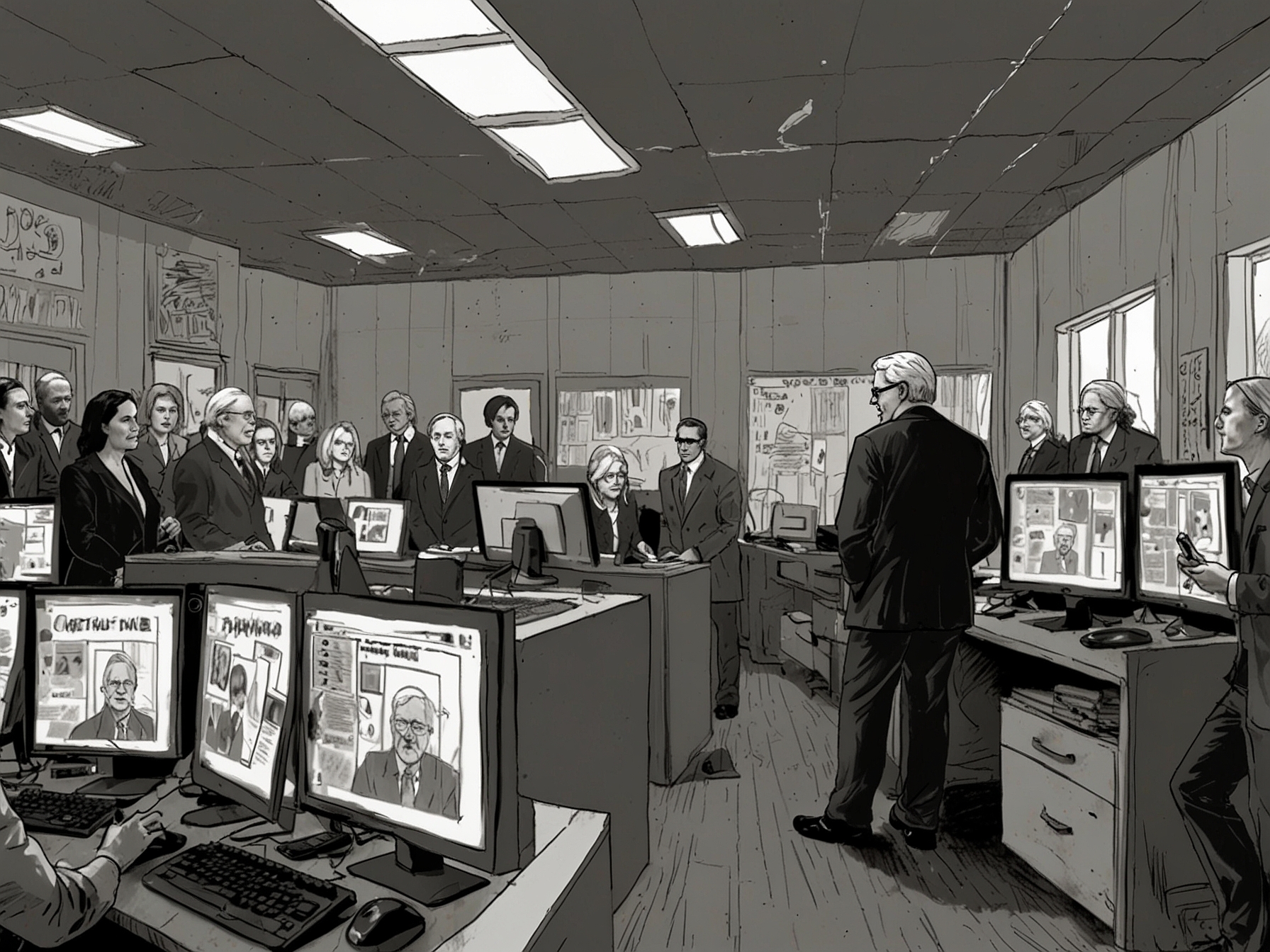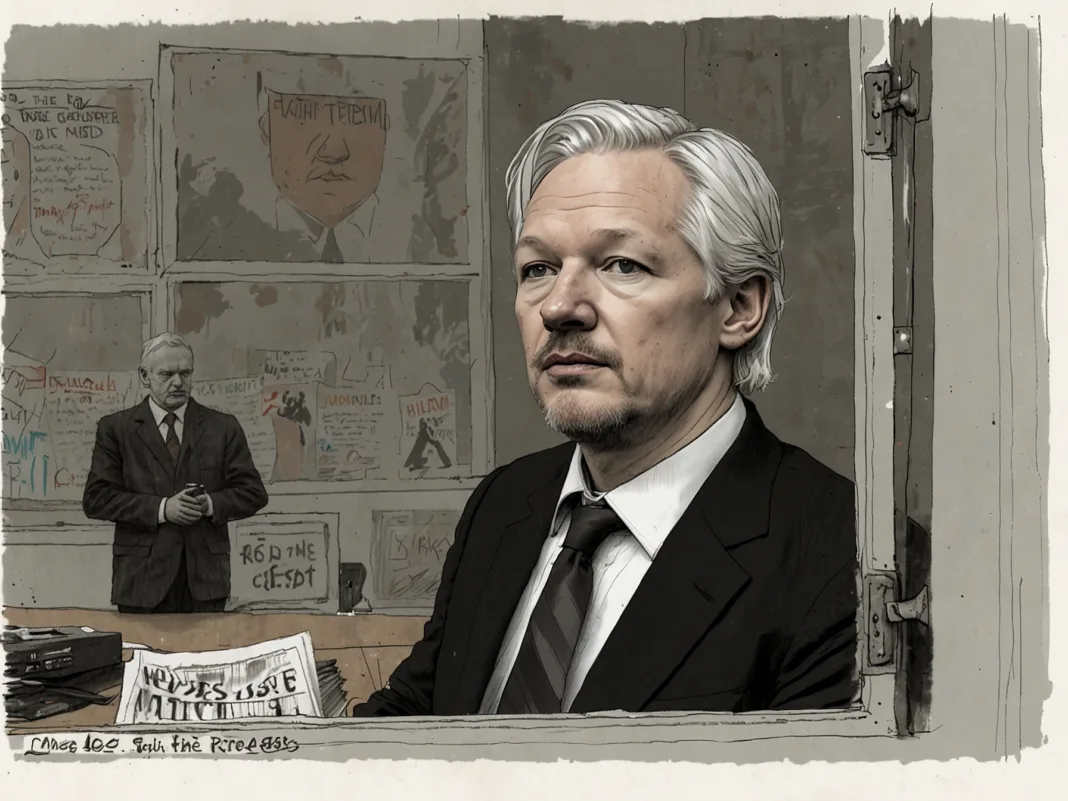Julian Assange, the founder of WikiLeaks, represents one of the most polarizing figures in modern journalism. On one hand, he’s hailed as a champion of transparency and a crusader against government oppression. On the other, he’s vilified as a traitor and a menace to national security. Recently, the news surrounding his release has reverberated through global newsrooms, each weighing the implications of this landmark event.

© FNEWS.AI – Images created and owned by Fnews.AI, any use beyond the permitted scope requires written consent from Fnews.AI
The Irish Times, in its deep dive into the release of Assange, zeroes in on the intricate web of consequences this decision might unravel. The delicate balance between ensuring national security and upholding press freedom has never been more strained. While Assange might be ‘free at last’, the road to this freedom came at a considerable price. For press freedom campaigners and investigative journalists globally, the real concern lies in the precedent this case sets.
Assange’s legal battle largely revolves around his publication of classified military and diplomatic documents provided by former US Army intelligence analyst Chelsea Manning. Charging him under the Espionage Act of 1917 marked a historically significant and contentious move by the US government. Never before in the act’s history had someone been tried for disseminating information to the public, primarily aimed at a journalistic endeavor. This unprecedented move raises significant red flags about the future of investigative journalism.

© FNEWS.AI – Images created and owned by Fnews.AI, any use beyond the permitted scope requires written consent from Fnews.AI
The Espionage Act, initially designed during World War I to prevent espionage, now looms over journalistic efforts like an ominous shadow. This case, for many press freedom advocates, is less about Assange as an individual and more about the broader implications for journalists worldwide. If the act can be leveraged against WikiLeaks, a journalistic entity, then the protections historically afforded to journalists become fragile and susceptible to eroding.
Key voices in press freedom circles argue that the ramifications extend beyond Assange and WikiLeaks. The chilling effect this legal precedent sets may deter future whistleblowers and news organizations from bringing vital information into the public domain. Governments, armed with the threat of severe legal consequences under espionage laws, might find it easier to keep their actions shrouded in secrecy, potentially to the detriment of public interest and democratic accountability.
The Irish Times editorial underscores that the implications of Assange’s case should prod global newsrooms to revisit their operational frameworks. News agencies might need to bolster their legal support and reevaluate their methodologies in handling sensitive information. The need for robust mechanisms to protect sources and journalists has never been more urgent.
Moreover, the broader public needs to remain vigilant. Citizens must understand the high stakes involved in securing a free press. Press freedom is fundamentally intertwined with the principles of democracy, accountability, and transparency. The erosion of these freedoms, as highlighted by the Assange case, would mean a step back for societies that value open governance and informed citizenry.
The release of Julian Assange, while a victory for his supporters, is a bitter reminder of the precarious state of press freedoms in today’s geopolitical climate. As the battle between national security and the public’s right to know rages on, this case serves as a critical touchstone for evaluating our commitment to the ideals of a free and unencumbered press.
In conclusion, while Julian Assange’s personal journey has been tumultuous and laced with legal and ethical quandaries, its broader implications underscore the need for unwavering support for press freedom. The legal tools capable of curtailing such freedoms, as demonstrated in this case, are not just theoretical concerns but real and present threats. Press freedom, though a cornerstone of democracy, is fragile and requires steadfast vigilance from both journalists and the public alike to safeguard it from erosion.
Was this content helpful to you?





